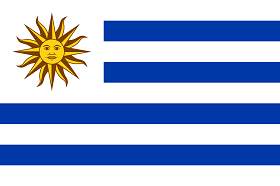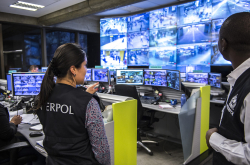 URUGUAY
URUGUAY
Tackling organized crime in Uruguay
With 142,000 km2 of Atlantic waterways in the southeastern region of South America, and sharing borders with Argentina and Brazil, Uruguay’s strategic geography is attractive to transnational criminal organizations wishing to carry out smuggling operations into the region, or to cross it on their way to other continents.
In addition, Montevideo’s prominence as an international port make Uruguay an attractive transit country for illegal merchandise from South America bound for North American, European and African markets. Other crime challenges for Uruguay include people smuggling, money laundering and cybercrime.
The international characteristics of these crime types and their links with crime networks around the world make the role of the INTERPOL National Central Bureau (NCB) in Montevideo fundamental to maintaining national and regional security.
INTERPOL in Uruguay
INTERPOL’s National Central Bureaus (NCB) in Montevideo plays a crucial role in tackling the global aspect of trafficking and preserving Uruguay’s national and regional security.

The Montevideo NCB is part of the ‘Dirección General de Lucha Contra el Crimen Organizado e INTERPOL’, which is the serious organized crime unit of the national police force.
Reporting directly to the Ministry of the Interior, the Uruguay INTERPOL NCB is an operational police division. Its staff can exercise police power across the country, including the power of arrest.
With a staff of ten police officers, INTERPOL Montevideo provides a 24-hour permanent service, working with the global INTERPOL community to help the National Police monitor the wider organized crime picture and reduce its impact on Uruguay.
National law enforcement in Uruguay
The INTERPOL NCB in Montevideo is part of the Policía Nacional de Uruguay (PNU), Uruguay’s national police force.
The PNU is part of the Interior Ministry.











